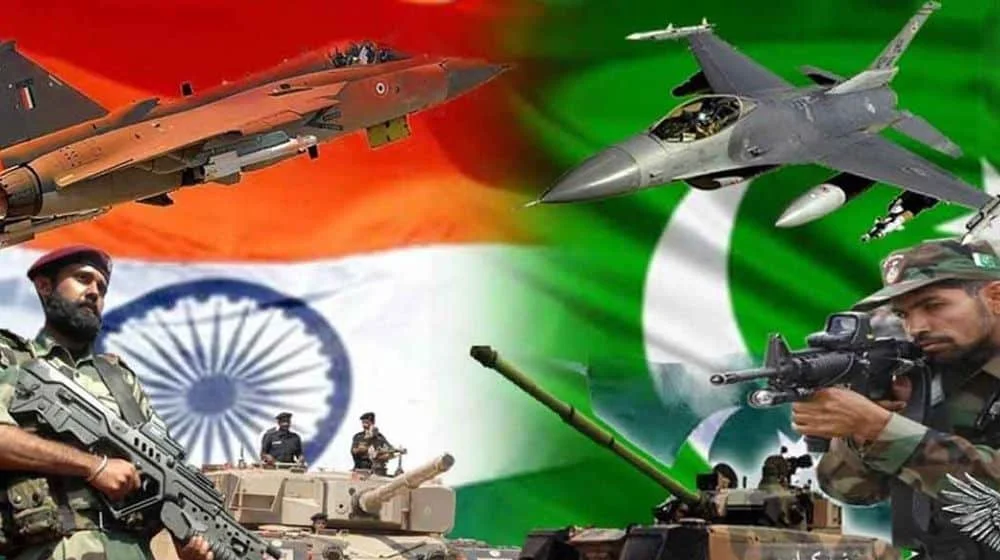Delhi races ahead in global diplomacy as Islamabad lags behind
While India has launched a multi-party diplomatic campaign to shape the global narrative, Pakistan’s delayed and limited response reveals deeper structural weaknesses
NEWS ANALYSIS
May 26, 2025
A FEW days ago, the governments of Pakistan and India made separate but strikingly similar announcements: both would dispatch parliamentary delegations to key global capitals to articulate their respective narratives regarding the brief but intense military conflict they recently engaged in. In effect, after exchanging missiles and drones, the nuclear-armed neighbours are now preparing to exchange statements and counter-statements in an attempt to win over public opinion and government sympathies in influential world capitals.
Yet, as one might expect, there is already a pronounced difference in how the two countries have approached this diplomatic endeavour. While the Indian initiative is already well underway, with multiple delegations landing in strategic countries, the Pakistani effort remains conspicuously dormant. Islamabad’s campaign is yet to get off the ground — quite literally.
From the outset, the scale and ambition of the two initiatives have been markedly different. India’s outreach has been extensive and rapid. According to credible reports, New Delhi has already dispatched several delegations — including teams currently in the United States and Bahrain — and is reportedly preparing for more in the coming days. These delegations are tasked with engaging diplomats, think tanks, media professionals, and parliamentary counterparts in order to present India’s version of recent events, justify its actions, and highlight perceived provocations from the Pakistani side.
Pakistan, by contrast, has yet to send a single delegation. The delay is not merely logistical; it is symptomatic of a deeper malaise in Islamabad’s policymaking and response structure. As the Indian delegations continue to shape international perceptions and dominate early media coverage, Pakistani representatives will be arriving late to the arena — if they arrive at all.
This lag presents Islamabad with two critical disadvantages. First, by the time Pakistani MPs begin their outreach, much of the global narrative may already be framed — if not solidified — by Indian assertions. In the world of diplomacy and media, timing is everything, and delayed messaging often ends up being defensive or redundant. Second, and perhaps more damaging, is the composition of the delegations themselves. While Indian delegations include representatives from across the political spectrum — thereby presenting a picture of national unity and democratic maturity — Pakistani delegations are expected to consist solely of members from the ruling coalition. The exclusion of opposition voices not only weakens the credibility of Pakistan’s message but also reinforces perceptions of political instability and democratic dysfunction within the country.
This imbalance could have long-term repercussions. International audiences, particularly in democratic nations, are far more receptive to unified national narratives than to partisan viewpoints. India’s multi-party delegations will be seen as speaking for an entire nation, while Pakistan’s ruling-party-only teams may be dismissed as politically expedient and unrepresentative.
The PM and the field marshal
Prime Minister Shehbaz Sharif and Chief of Army Staff General Asim Munir have visited Istanbul, where they met Turkish President Recep Tayyip Erdoğan. The purpose of the visit was to express gratitude for Turkey’s timely support during the recent crisis. The trip concluded positively — hardly surprising given the long-standing and cordial relations between Islamabad and Ankara. Turkey remains one of Pakistan’s most reliable allies, and its diplomatic support is both valued and expected.
However, the timing and optics of the visit raise valid questions. At a moment when Pakistan desperately needs a coordinated diplomatic push to win over undecided or sceptical governments in the West and the Arab world, the country’s top civilian and military leaders chose to visit a friendly state instead. This appears to be a missed opportunity. Reassuring allies is certainly important, but it is often more urgent to influence the neutral or the undecided — especially when one's rival has already begun to do so.
Moreover, in a period of national crisis, the absence of both the prime minister and the army chief from Islamabad sends an unsettling message. Delegating such critical duties to subordinates may give the impression that the country’s leadership is either unsure of its diplomatic priorities or unwilling to confront the difficult task of persuasion on hostile ground.
In essence, Pakistan has been slow to respond to an international public relations battle in which it has everything to lose. In contrast, India has moved swiftly, unified its political class, and taken the initiative in shaping the global conversation. Unless Pakistan recalibrates its strategy — and does so quickly — it risks ceding valuable ground not only on the battlefield of diplomacy, but in the court of global opinion as well.
